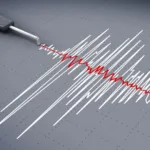The Impact of Hurricanes on Marine Life: Unveiling the Hidden Consequences
Introduction: The Unseen Effects of Hurricanes on Marine Environments
When powerful hurricanes strike, we often witness the destruction they cause on land—uprooted trees, devastated homes, and widespread devastation. However, what happens beneath the ocean’s surface remains less obvious but equally significant. The marine ecosystems along the Florida peninsula, a region frequently hit by hurricanes, encompass diverse habitats such as coral reefs in the Florida Keys, temperate marshes, and seagrass meadows near the panhandle. These ecosystems respond uniquely to hurricanes, and the effects vary depending on the storm’s intensity and characteristics.
Also Read: What Is Jio Airfiber? Price, Plans And New Connection Booking
Diverse Responses of Marine Life
Not all hurricanes are created equal, and their impact on marine life varies. Some factors influence how marine creatures react to these powerful storms:
1. Storm Surges and Disturbance: While a hurricane’s storm surge can mimic a high tide and leave certain marine areas relatively undisturbed during the storm, the aftermath can bring its own set of problems. This includes changes in salinity and the influx of sediment and bacteria.
2. The Force of a Hurricane: Hurricanes in the Atlantic basin, which encompasses the Atlantic Ocean, Gulf of Mexico, and the Caribbean Sea, can generate enormous 60-foot waves. These waves mix cold water from the depths with warmer surface waters and stir up sediment as deep as 300 feet.
3. Marine Animal Responses: Many marine mammals and fish can sense the approaching danger and move to deeper, calmer waters. Lower barometric pressure and changes in water temperature can trigger them. For instance, researchers observed blacktip sharks leaving an area before a tropical storm and returning within days.
4. Devastating Impact: Hurricanes can be deadly for marine life. After Hurricane Andrew in 1992, an estimated 9.4 million saltwater fish perished, with sediment clogging gills and pressure changes causing nitrogen gas bubbles in their blood. In freshwater environments, hurricanes can lead to oxygen-deficient conditions, resulting in massive fish deaths.
5. Disruption of Habitats: Hurricanes can uproot seagrass beds and bury oyster reefs under shifting sediment, impacting stationary marine life.
6. Coral Reefs: Some corals rely on waves to disperse and thrive in new areas, but hurricanes can both help and harm them. While they can bring cooler water to offset coral bleaching, overly strong waves can break and kill corals.
Post-Hurricane Ocean Effects
After a hurricane subsides, the marine environment continues to face challenges:
1. Lingering Debris: Debris and waste from hurricanes can persist in bodies of water for months or longer. For instance, Hurricane Ian left cars and boats leaking gasoline and chemicals into Estero Bay.
2. Sewage and Bacteria: Sewage can find its way into waterways, introducing bacteria like enterococcus and E. coli, posing health risks.
3. Altered Salinity: Hurricanes bring an influx of freshwater to marine environments through rain and flooding. This can stress organisms not accustomed to significant changes in salinity. For example, alligators on Sanibel Island were affected by saltier ocean water brought ashore by Hurricane Ian.
4. Algal Blooms: The introduction of river water from hurricanes can create ideal conditions for large algae blooms, impacting sunlight penetration and the availability of seagrass, which is crucial for marine herbivores like manatees.
Conclusion: A Delicate Balance
Hurricanes are natural events, and ecosystems are periodically designed to withstand disruption. However, they require sufficient time to recover before the next one strikes. Climate change may not increase the number of hurricanes, but it could intensify them, leading to higher storm surges and increased flooding—negative news for ocean life. Understanding the hidden consequences of hurricanes on marine environments is crucial for preserving these delicate ecosystems in an ever-changing world.
This article was originally published by Business Insider.






